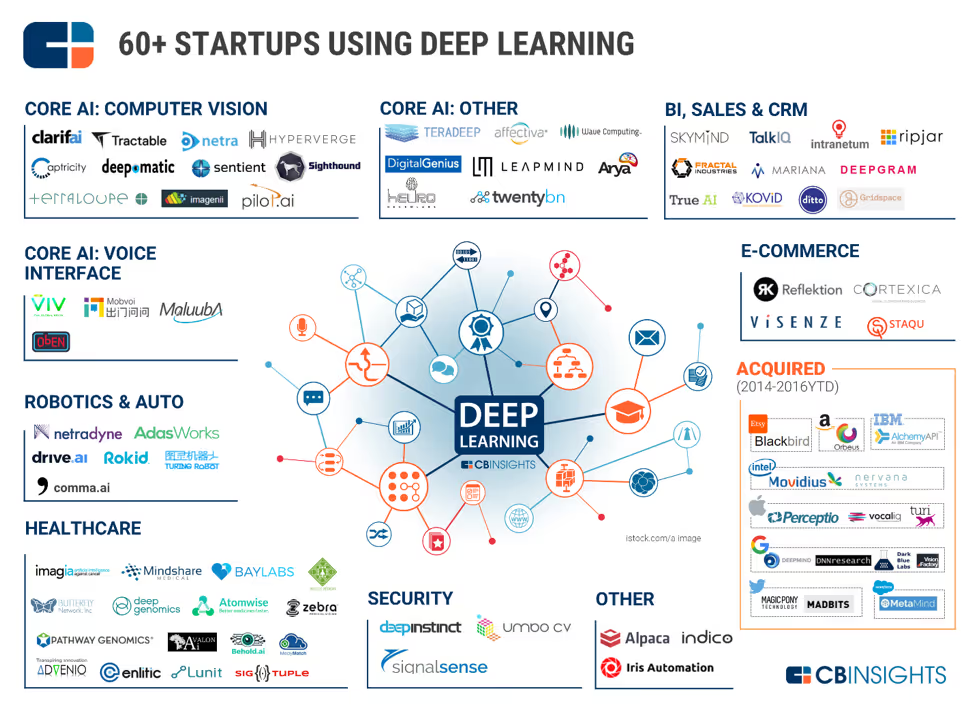A Match Made in Heaven: Bringing AI into the Customer Service Workflow
A few months ago, my roommates and I were gathered together to watch a classic Sunday night television lineup of John Oliver and Silicon Valley. We placed a takeout order using an online ordering platform, but after 90 minutes of waiting for food, we were hungry, frustrated, and needed an immediate answer as to where the missing order was. My next step was to contact the customer support team but there was no available phone number; rather I was directed to fill out a support ticket and told my ticket would be answered in 24-36 hours. This was a completely unacceptable user experience (I wasn’t going to simply skip dinner!) which promptly led me to stop using the service and write a negative online review.
Unfortunately, these ineffective responses when engaging with customer service teams are all too common. In an age when customers are more willing than ever to switch providers and businesses compete based on the quality of customer service, these mistakes can kill companies. Therefore, I am particularly excited to announce our latest investment, Solvvy, the intelligent self-service platform for customer experience. Solvvy uses artificial intelligence and natural language processing to understand and answer questions immediately, even when they are long and complicated, misspelled or phrased in different ways. If an issue requires human assistance, the technology immediately routes the customer to a person.
Solvvy identified that customer service agents are often dealing with a challenging sorting problem: while they are often awash in a backlog of tickets to resolve, there are massive differences in ticket “quality.” Tickets that correspond to high-priority customer needs like “I need my food now” are sandwiched between hundreds of tickets querying “how do I change my password?” and “how do I adjust my credit card on file?” Wouldn’t it be nice if you could triage the easy questions, and let customer service reps focus on the hardest ones? When we first met Solvvy, we were completely baffled to learn that a high percentage of questions could be solved if the customer simply spent time doing website search or even reading the articles in the help section of the company knowledge base. Yet the more we spoke to customer support teams, we ultimately realized that customers naturally gravitate to a workflow where they can ask questions in everyday language and get a direct answer, as opposed to the traditional search paradigm which provides a link to an article, but not an actual answer. This is where Solvvy stands out.
Artificial intelligence in the enterprise
We believe Solvvy is riding two important megatrends in technology: the increasing prominence of the customer service experience coupled with the rise of artificial intelligence. Solvvy joins portfolio companies like TalkIQ, Textio, Forter, and Aviso who are bringing AI to the world of enterprise software.

It seems like these days, creating market maps of “AI companies” (see above) is all the rage: however, we fundamentally believe that these maps fall victim to a fallacy of equivalence. “AI companies” in different markets don’t belong side-by-side in one giant market map. Rather there are certain use cases/markets (e.g. customer service) which differentially lend themselves to AI and that every company should be evaluated in the context of the business value it provides. Ultimately buyers of enterprise software are used to thinking of software as deterministic, yet AI is fundamentally probababalistic in nature, meaning it will often make errors. Understanding the impact of these inevitable errors in the context of a given business workflow is core to how we think about AI at ScaleVP.
Why Solvvy stood out:
- Provides easily measurable ROI: Solvvy has a clear value proposition of reducing agent workload, automating support tickets, and improving net promoter scores. Given that the cost of customer support teams generally scales linearly with company size, Solvvy allows companies to bend the cost curve and grow without needing to add more agents. The company is already helping companies like TaskRabbit, Atlassian, and Upwork streamline their customer service.
- Uses transfer learning across customers: Transfer learning means that Solvvy is able to apply certain learnings from customer A to customer B while accounting for differences across customers. For example, certain words in different industries might have different meanings. In AI speak, this means that Solvvy is letting the classifier learn both a separate weight for each customer and a weight shared across all channels.
- Is easily trained using instantaneous customer feedback: After Solvvy provides an answer, customers answer “yes” or “no” as to whether the Solvvy answer was helpful. A great way to generate training data with a super short feedback cycle.
- Has access to a proprietary data source: Solvvy is able to generate a unique Answer Graph from each customer’s knowledge base, ticket history, CRM, and other internal data sources.
- Is led by a credible team with deep technical experience: Solvvy co-founders Mehdi Samadi and Justin Betteridge studied together at CMU, receiving graduate degrees in computer science with a focus on knowledge-based natural language understanding, giving them a front-row seat to advances in this challenging discipline. The technical team is augmented by CEO Mahesh Ram who is a tested leader in building SaaS businesses with his background as the former CEO of GlobalEnglish.
We are excited to welcome Solvvy to the ScaleVP portfolio and look forwarded to partnering with the company in the next phase of rapid growth. Hopefully, next time, I can get my food (or least a response) in time.
News from the Scale portfolio and firm


